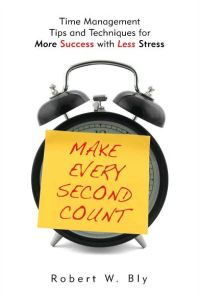Join getAbstract to access the summary!

Join getAbstract to access the summary!
Robert W. Bly
Make Every Second Count
Time Management Tips and Techniques for More Success with Less Stress
Career Press, 2010
What's inside?
Do your days seem shorter than ever? Here’s how to stretch your time and get more done.
Recommendation
Dilbert, Scott Adams’ sad sack cartoon antihero, is the modern-day Everyman. Micromanaged and overworked, Dilbert seldom gets what he needs – especially time. A recent commercial includes this voice mail for Dilbert: “You have 947 messages...all urgent.” And he is not alone. Men’s Health magazine recently reported that the average Fortune 1000 worker deals with 178 messages daily – more than 22 messages every hour. Today, few people have the time to manage their multiple responsibilities and tasks. People need to learn how to use their time more efficiently. Business author Robert W. Bly teaches you how. getAbstract recommends his guide for its abundant useful tips and techniques for optimizing your productivity, enhancing your performance and becoming more efficient.
Summary
About the Author
Robert W. Bly is the author of 75 books. More than 65,000 subscribers receive his online newsletter, “The Direct Response Letter.”


















Comment on this summary